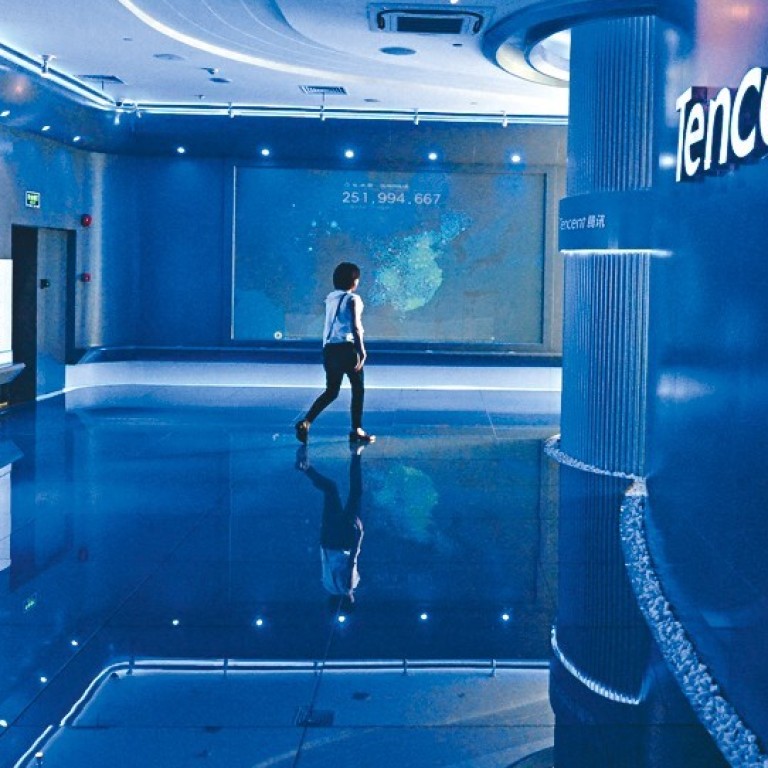
Big Tech’s regulatory challenges in China include closer scrutiny of taxes, but many see this as long overdue
- While warning Big Tech about common misconduct, regulators have also ordered companies to carry out ‘comprehensive’ investigations into tax-related issues
- Lax tax collection among online merchants in China has become an endemic problem due to the digital economy’s break-neck growth
Wu Xi owns two screw shops on e-commerce platform Tmall. Launched in 2017, they currently employ 25 people and bring in about 2 million yuan (US$308,937) every month, which by law requires him to pay taxes on each transaction.
Wu says he has never thought about tax evasion but admits that he has failed to report some transaction for tax purposes because in many cases individual buyers did not request fapiao, China’s official invoices.
Wu is among millions of online merchants in China that have been underpaying taxes, intentionally or unintentionally, due to a taxation regime that has failed to keep pace with the country’s fast-growing digital economy.
After slapping a US$2.8 billion fine on Tmall owner Alibaba Group Holding last month for antitrust violations, China’s regulators – including antitrust watchdog the State Administration for Market Regulation (SAMR), internet regulator the Cyberspace Administration of China (CAC), and the State Taxation Administration – have since hauled in 34 of the country’s biggest tech companies for a lecture on respecting industry rules and safeguarding consumer rights. Alibaba owns the South China Morning Post.
While warning Big Tech about common misconduct, such as anti-competitive behaviour and bad data privacy practices, regulators also ordered the companies to carry out “comprehensive” investigations into tax-related issues on their platforms and to engage in “self-correction”.

Lax tax collection among online merchants in China has become an endemic problem due to the industry’s break-neck growth over the past decade.
“In the early days of platform development, e-commerce firms needed merchants to join and be active, so they might have turned a blind eye to those not complying [with taxation rules],” said Lawrence Hu, a Shanghai-based partner at law firm Jingtian & Gongcheng.
“And there also wasn’t a comprehensive legal framework for taxing online merchants.”
The involvement of the country’s top tax authority in the latest admonishment of Big Tech reflects the seriousness of the issue for Beijing, as it seeks to set a better regulated framework for China’s future digital economy.
China’s antitrust watchdog proves its might with Alibaba fine
In 2020, China’s digital economy generated 39.2 trillion yuan, accounting for 38.6 per cent of China’s GDP, according to a white paper published by the China Academy of Information and Communications Technology (CAICT) last month.
Han Zheng, senior vice-premier of the State Council and Politburo Standing Committee member of the Chinese Communist Party, said at a seminar in March that the platform economy was among the key areas to study in terms of finance and taxation.

02:06
Facebook, Amazon, Google and Apple respond to Congress about whether China steals US technology
Former finance minister Lou Jiwei warned in December that the country’s fiscal revenue was expected to be stuck at “a low level” in the coming five years, with no sign of the government cutting back its spending.
“The taxation authorities have lacked supervision over the digital economy, partly because the development of business models in the sector have significantly outpaced the development of tax regulations,” said Yang Tianyao, counsel at Lifang & Partners.
One example is tipping, according to Yang. The tips that viewers give to live streamers is a huge source of income for China’s live streaming platforms, but such transactions don’t involve invoices and are sometimes done outside live streaming platforms through direct transfer on third-party mobile payment tools, Yang said.
China’s Big Tech firms to create user information oversight bodies
“Things like that are beyond the taxation administration’s regulatory scope and ability.”
While online merchants are already required to pay taxes under China’s existing legal frameworks, including the E-commerce Law and tax laws, a new set of rules rolled out earlier this year that went into effect last weekend have added details that will help make implementation easier, lawyers say.
In March, the SAMR introduced new rules for online transactions, which emphasised the role of platforms in helping authorities tax the digital economy.

01:26
China kicks off antitrust probes into Alibaba over alleged monopolistic practices
The new rules require platforms to accredit the qualifications of merchants on their platforms and keep track of the products and services they offer. Platforms are also urged to report and submit merchants’ data to authorities to help them regulate the market.
“The implementation of e-commerce law is a watershed moment for the sector … and the latest administrative measures for online trading makes it more practical for enforcement,” said Wang Qiongfei, lawyer at Hangzhou-based Kinding Law Firm.
The involvement of the taxation authorities in regulating the platform economy is partly aimed at ensuring a level playing field for online and offline businesses, Lawrence Hu added.
At the same time, taxation data is an important tool for the country to regulate the macro economy and for helping other government bodies in decision making. Cross checking data with taxation authorities, for instance, can aid Beijing’s antitrust law enforcement, he said.
China updates rules on social media accounts
“The SAMR is the one making the calls on antitrust issues, but it might ask for assistance from other government bodies including the Taxation Administration to provide relevant data to support its decision on penalties,” said Ding Mengdan, lawyer at Beijing Yingke (Hangzhou) law firm.
Stricter tax rules will help restrict illegal practices by some merchants, such as buying fake traffic to jack up sales, because that also leads to heftier taxes for the merchants to pay, according to Ding. “This is a clean-up of the industry that will eliminate inferior merchants and allow the fittest to survive,” he said.
Wu, the screw shop owner on Tmall, said that about 10 to 15 per cent of orders for his shop might be affected by the new rules, but he is not concerned.
“I think it’s a good thing for us,” he said. “It will kill off inferior merchants, which is a much better result than paying more taxes.”


